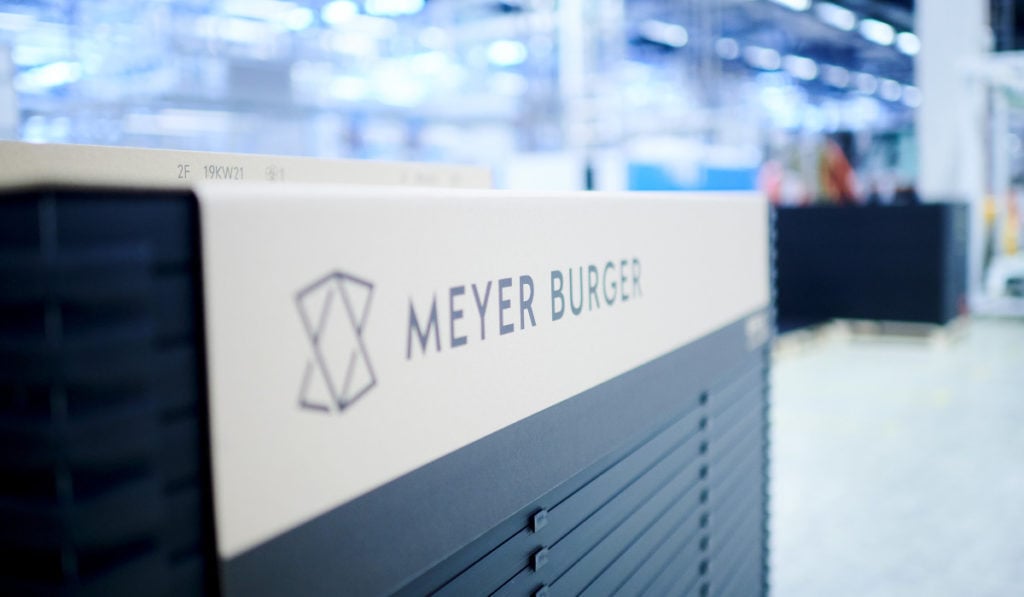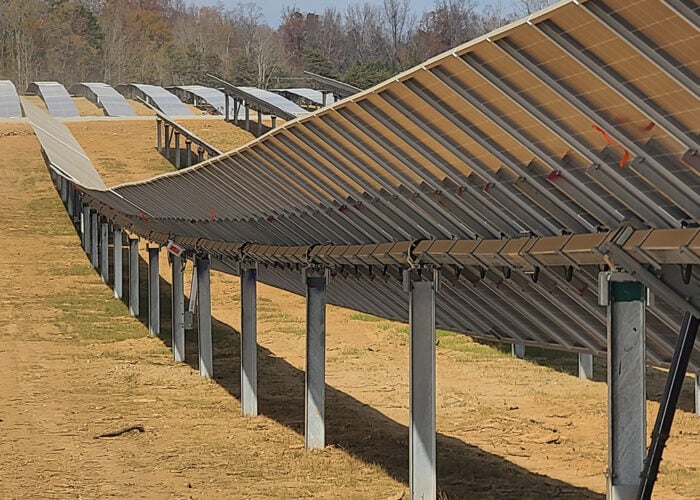
PV manufacturer Meyer Burger has posted financial results for 2023, with net loss increasing by 318% to CHF292 million (US$330.6 million).
Net sales in 2023 dropped to CHF135 million, down from CHF147.2 million in 2022. The company’s earnings before interest, taxes, depreciation, and amortisation (EBITDA) also increased significantly from CHF34.6 million in 2022 to CHF163.6 million.
Unlock unlimited access for 12 whole months of distinctive global analysis
Photovoltaics International is now included.
- Regular insight and analysis of the industry’s biggest developments
- In-depth interviews with the industry’s leading figures
- Unlimited digital access to the PV Tech Power journal catalogue
- Unlimited digital access to the Photovoltaics International journal catalogue
- Access to more than 1,000 technical papers
- Discounts on Solar Media’s portfolio of events, in-person and virtual
“As the year progressed, it became clear that dumping prices from Chinese suppliers in Europe, coupled with a sharp rise in Chinese production overcapacity and a lack of market protection, led to unprecedented distortions in the European solar market, which had a serious impact on Meyer Burger’s earnings,” said Franz Richter, chairman of Meyer Burger, and Gunter Erfurt, CEO of Meyer Burger.
Meyer Burger said its module manufacturing capacity was 1.4GW as of the end of 2023, but it only produced 650MW of modules as “market distortions in the European market did not allow for production at full capacity”. Therefore, module inventories increased to 365MW.
Looking ahead, the company said it “welcomes the recent decision on resilience measures in Italy”. Regarding its inventory, Meyer Burger expects to benefit financially from further potential resilience regulation in Europe during the implementation phase of the Net Zero Industry Act (NZIA).
Production in the US
Meyer Burger announced its plan to close its module assembly plant in Germany and focus on its footprint in the US in January. At that time, it cited a lack of sufficient measures to create a level playing field in Europe in terms of a resilience-reward scheme as the reason for the closure.
The company said the proceeds from potential debt financing sources, together with the proceeds from the capital increase, will enable it to start module production in a 2GW plant in Goodyear in the US state of Arizona by the end of the second quarter of 2024. The 2GW cell production plant in Colorado Springs, Colorado, is also expected to ramp up by the end of 2024.
Speaking of the US market, Richter and Erfurt said the potential in the US is “considerable” thanks to existing offtake agreements.
“Assuming that cell and module production at the US sites can be ramped up as planned, the group expects to generate an annual EBITDA of around CHF250 million per year in the medium term from its business in the US,” they said.







